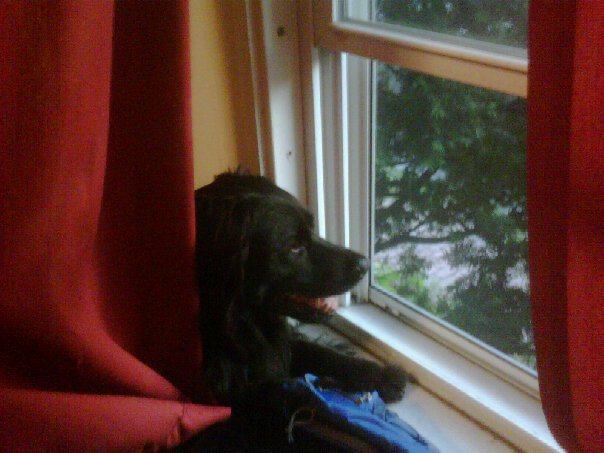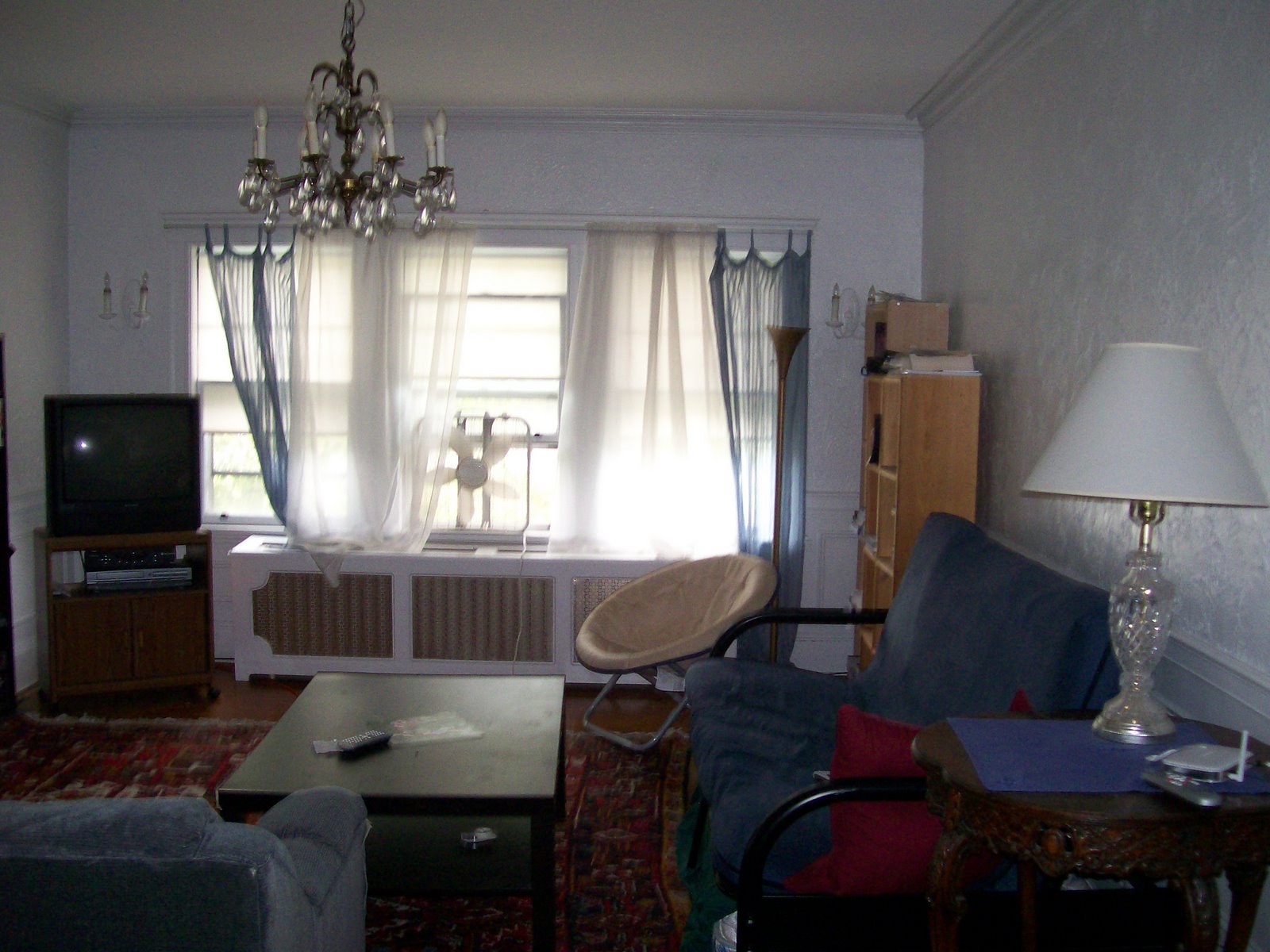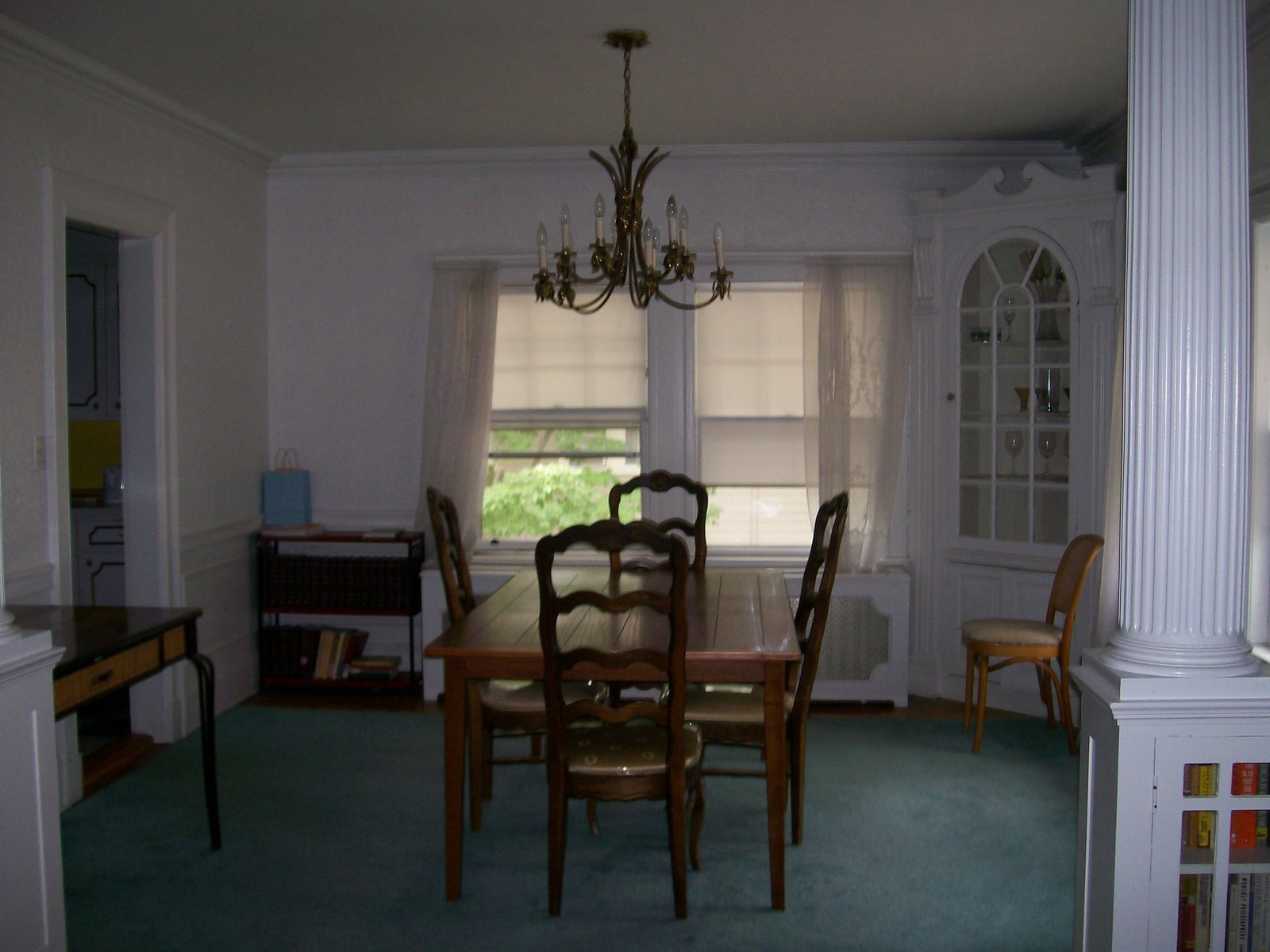This isn’t a Katie Recommends or even a review, really—just thoughts on two movies I’ve seen recently: 500 Days of Summer and Julie and Julia. These thoughts don’t really have anything to do with each other…they’re just two movies I wanted to write about because they made me think about things beyond what I saw on the screen. So here we go. WARNING: This entry contains spoilers for both movies, plus The Way We Were.
500 Days of Summer
I didn’t want to see this movie at first, largely because of the moment they show on all the previews, where the guy decides he likes the girl after they discover they both like The Smiths. That just bugs me because I think music is a really shallow thing to base a relationship on—it’s like dating someone because you both like chocolate pudding—and yet, people do it. But it turns out that the moment where they bond over The Smiths isn’t really about the music—it’s more like the guy (Tom) realizing that, based on a short conversation, the girl (Summer) is someone he might be able to date instead of just admire from afar.
But, as we discover, he probably would have been better off doing just that. The book and movie He’s Just Not That Into You detail how women tend to ignore signs that guys aren’t interested, or at least aren’t as interested as the women want them to be. This movie proves that men can have that same tendency—it could easily have been called She’s Just Not That Into You. Summer tells Tom upfront that she doesn’t want a boyfriend and doesn’t believe in love, but Tom keeps pursuing her, and soon they’re quasi-dating. On day 290, Summer tells Tom she doesn’t want to see him anymore, and he plunges into a massive depression, vowing that he’s going to “get her back.” But instead, just as he thinks things might be ready to start up again with them, he learns that Summer is engaged to another man (whom we never meet and learn next to nothing about). He’s Just Not That Into You tells us that if he says he doesn’t want a girlfriend, he really just doesn’t want you to be his girlfriend. If he says he doesn’t want to get married, he really just doesn’t want to marry you. If he’s breaking up with you, he doesn’t want to be with you and you should leave it at that. If you replace the pronouns, that’s the lesson of this movie.
I don’t want to make it sound like this is a bad movie, because it’s really not. It’s entertaining and funny with some great lines, and the narrative is non-linear, which is an interesting, if a bit gimmicky, format. But I had two big problems with it. The first is that it’s a movie about a failed relationship. I know a lot of people will probably disagree with me on this, but I think that movies about relationships that don’t work out are usually pointless and rarely interesting. Breakups, to me, are like babies—if you have a baby, other people will be interested to a certain extent but don’t want to hear you go on and on about it, and the same is true for breakups. They’re just not that interesting to anyone except the people going through them. You wouldn’t make a whole movie about how cute a baby is, and you shouldn’t make a whole movie about how awful a breakup is.
In the Sex and the City quote at the top of my blog, “Katie” is Katie Morosky, Barbra Streisand’s character in The Way We Were, another movie about a relationship that didn’t work out. When I saw that movie, I’d recently seen The Breakup with Jennifer Aniston and Vince Vaughn ( a movie that’s not only pointless but pretty depressing—if you haven’t seen it, don’t), and so The Way We Were kind of felt like The Breakup with Communism. It was a movie about two people who just weren’t right for each other, and so is 500 Days of Summer. Personally, I don’t find anything interesting about two people who aren’t right for each other. Most combinations of two people aren’t. It’s the relationships that defy the odds and work out, and the hard work as well as the romance that goes into them, that are really interesting to me.
The other problem that I had with is related to the She’s Just Not That Into You thing—that Tom keeps pursuing Summer despite the clear signs that she’s not interested. Granted, Summer does lead him on quite a bit, which is never cool, and Tom is guilty of misreading signals above all else. But since Summer did tell him outright that she didn’t want a boyfriend, then that she didn’t want to be with him, I found his line of thinking disturbing. It’s the same reasoning that date rapists use—she said no, but she meant yes. And I realize that it’s a big leap to go from misguided, hopeless romantic young man to date rapist, but the thinking is similar. Tom thinks he can “get Summer back,” as if it’s just a matter of him doing the right combination of things and not a decision of hers as well. He isn’t willing to let her make her choice and be done with it—he has to have things his way. Many women are guilty of thinking this way, too, that if they just say or do the right thing, the guy will change his mind, but somehow, it does seem a bit more disturbing from a guy, as if he thinks that dating her is his right.
In the case of this particular movie, it’s also more disturbing because of the card at the beginning: “Any resemblance to people living or dead is purely accidental … Especially Jenny Beckman … Bitch.” I laughed when I read it, thinking it was some kind of inside joke, but then I read this article. There’s no way of proving if “Jenny Beckman” is real or just a fabrication meant to draw more attention to the film, but if she is real, that brings another level to this movie, one that kind of scares me.
Julie and Julia
My thoughts on this movie are much more positive, and aside from the spoilers, I need to make another disclaimer: when I refer to Julie and Julia in this post, I’m referring to them as characters portrayed on screen, not the real Julia Child and Julie Powell. I know from reading that there is a lot about their lives that the movie left out—for instance, that Julia Child was a spy and some not-so-pleasant things I learned about Julie Powell as a person—but that’s not what I’m talking about here.
If you don’t know the plot, in a nutshell, it follows Julia Child (Meryl Streep) as she learns French cooking while living in Paris with her diplomat husband and eventually seeks publication for Mastering the Art of French Cooking. Meanwhile, it also follows Julie Powell (Amy Adams), who in 2002 started a blog in which she spent a year cooking all of the recipes in Mastering the Art of French Cooking.
The movie was directed by Nora Ephron, who has written and/or directed several of my favorite movies, and the tone of the movie is familiar to anyone who’s watched one of her movies. Amy Adams is adorable and reminds me of a young Meg Ryan, and there’s a scene where Julie and her three friends are in a restaurant and all order Cobb salad minus one ingredient (a different ingredient for each of them) that’s reminiscent of Meg Ryan’s character in When Harry Met Sally taking too long to order in a restaurant. And as for Meryl Streep…well, your opinion of her will not change after seeing this movie. She’s as awesome as ever.
There turned out to be a lot more to this movie than I expected. First of all, it’s about two women who found success at unexpected times in unexpected places. Julia Child is in her late thirties when the events of this movie take place, and it wasn’t until then, after she’d spent a lot of time not quite knowing what to do with herself in France, that she began the work for which she’s known. Also, she didn’t meet her husband, whom she was married to until he died at age ninety-two, until her mid-thirties.
I’ve read a lot of reviews of this movies that say that the Julie parts aren’t as interesting as the Julia parts, but I strongly disagree. I actually think the Julie scenes might be a bit more interesting, partly because I found them easier to relate to. In 2002, Julie was twenty-nine, working in a dead-end job for Lower Manhattan Development Corporation (after 9/11, which had to be the worst job in the world), and living in a tiny apartment above a pizza shop in Queens. She’d written a novel that couldn’t find a publisher, and in the Cobb salad scene I mentioned, she’s out to lunch with a group of obnoxious friends who flaunt their success in her face, dramatically breaking out the Blackberries in the restaurant. One of them even makes her the focus of a pitying article in New York magazine (I don’t think that actually happened in real life, but it’s still a mortifying scene). But when she reads over the copy of Mastering the Art of French Cooking she jacked from her parents’ house, she decides to take her life in a new direction by attempting to cook all 524 recipes in the book in a year and blogging about it. She not only meets her goal (not without a few challenges), but becomes the ultimate blogger success story: her blog became a book, the book became a movie. Essentially, while the Julia parts were enjoyable, the Julie parts were what really resonated with me. Julia Child is an icon, and while the movie humanizes her, it doesn’t take her off her pedestal. Julie, however, is one of us—a neurotic, angsty, struggling twenty-something (married, though) who will never be up on the pedestal herself, but reaches her own version of greatness by accomplishing what a great woman did before.
The other thing I enjoyed about this movie is how both women achieve success while their husbands wait supportively in the background. This is something that has always bugged me—it seems like in any movie about a woman accomplishing something, her significant other either leaves her or doesn’t exist. On the other hand, in any movie about a man accomplishing something, there’s always a supportive wife, and it seems like in any given year, half the Best Supporting Actress nominees are “wife-of” characters. In most movies, it seems like men can have it all but women can either have a loving partner or personal success. Not in this one.
I’ve written before about how lately I’ve found myself fearing things staying the same, a fear that’s probably shared by a lot of people my age. I’ve felt this way even more lately because this summer, I spent a good deal of time and energy applying for a job that I really wanted but ultimately didn’t get, and I’m not sure what the next step will be for me. So it’s gratifying to watch a movie about two women who found success in unexpected places at times when they weren’t sure what their next step was, either.




